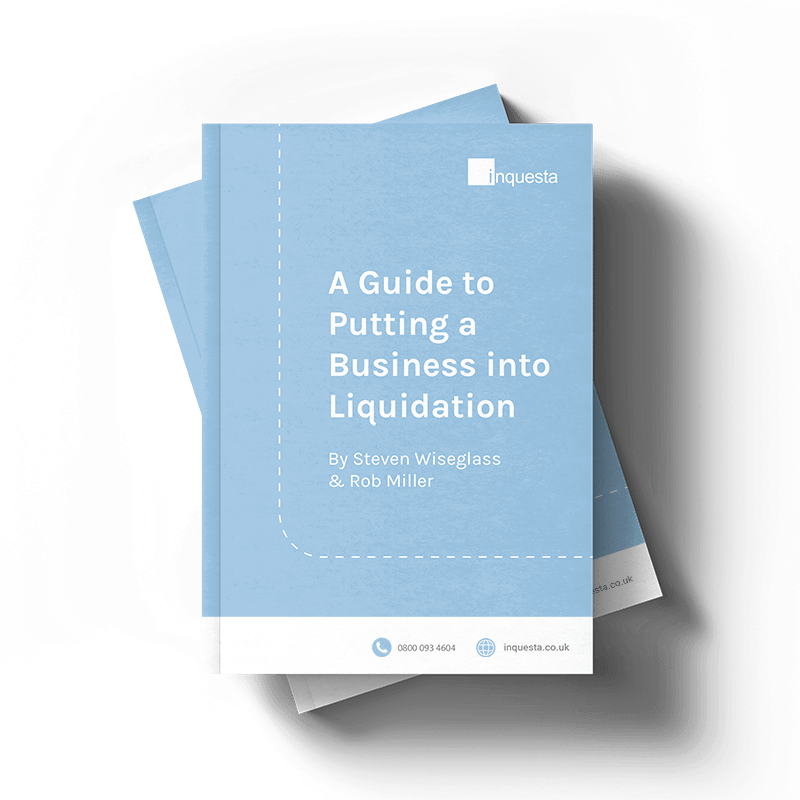
Winding up a Solvent Company in the UK: Step-by-Step Support
If you’re considering winding up a solvent company in the UK, it’s crucial to follow the correct legal procedures to ensure the process is handled smoothly and efficiently. At Inquesta, we specialise in solvent winding up, providing expert guidance to directors looking to close their businesses in a legally compliant manner without complications.
Understanding Solvent Winding Up in the UK
Winding up a solvent company is the formal process of closing a business that has no outstanding debts and is in good financial standing. If your business is solvent and you’ve decided to wind it up, there are two primary options for you to consider: Members Voluntary Liquidation (MVL) and striking off.
An MVL is the most common method of winding up a solvent limited company. It involves the appointment of a licensed insolvency practitioner (liquidator) who will manage the sale of company assets, settle outstanding creditor claims, and distribute the remaining funds to shareholders before formally overseeing the company’s dissolution and removal from the Companies House register.
Alternatively, if your company is no longer operating (for at least three months), has no assets, and is liability-free, striking off could be the best route available. This method is simpler than an MVL but comes with its own specific criteria, such as not having ongoing liquidation proceedings or creditor agreements in place.
Each option has distinct advantages. The ideal solution for your business will depend on its specific circumstances. Speak to a member of our expert team for more information, as well as specialist guidance based on the realities of your situation.
When Should You Consider Winding Up a Solvent Company?
There are several reasons why you might consider winding up a solvent company in the UK. The most common ones include:
- Retirement: You’ve decided to retire and no longer wish to manage your business.
- Company Sale: If the business has been sold or is no longer viable, solvent winding up can be a useful option.
- Return on Investment: You wish to liquidate the business and return capital to shareholders.
- No Plans Going Forward: The company has no future plans or assets to distribute.
Regardless of your reasons, it’s essential to ensure that the process is handled properly, and with specialist guidance, to avoid any future liabilities.
The Benefits of Solvent Winding Up
Solvent winding up offers several benefits for UK businesses:
- Greater Control: Solvent winding up gives you more control compared to other closure methods, ensuring the process is completed on your terms.
- Tax Efficiency: Particularly with an MVL, there can be significant tax benefits for shareholders.
- No Ongoing Liability: Once dissolved, you are no longer responsible for the company’s affairs, ensuring peace of mind.
- Asset Distribution: Any remaining assets can be fairly distributed among shareholders, providing a return on your investment.
Download our FREE Guide to Liquidation
If your business has received a winding-up petition, understanding the liquidation process is vital. If you aren’t able to get your winding up petition dismissed, or addressed in another way, it can easily lead to compulsory liquidation if not addressed quickly, making it essential to explore your options and take well-informed action.
Our FREE Liquidation guide provides clear, expert advice on:
- Key warning signs that your business may be in danger of possible liquidation.
- Which insolvency options are available and which ones best suit your situation.
- What the liquidation process looks like
- Things you should be aware of throughout the process.
- What life after liquidation looks like.
If you’re considering liquidation or seeking more information, download our comprehensive Liquidation Guide and explore everything you will need to know.

Solvent Winding Up Process: How it Works
The process of winding up a solvent company in the UK is formal and structured, it offers a way to close a business in a way that will comply with all legal requirements, while also ensuring the interests of all relevant parties are respected. Here’s an overview of how the process works and what you can expect:
How Inquesta Helps with the Solvent Winding Up of a Company
The process of winding up a solvent company may seem straightforward, but it’s essential to receive expert advice to avoid future complications. At Inquesta, our team of insolvency specialists provides a personalised and transparent service, ensuring your company is closed in the most efficient way.
We will:
- Conduct a detailed assessment of your company’s financial situation.
- Advise you on the most suitable winding-up option.
- Ensure full compliance with legal requirements throughout the process.
- Liaise with HMRC and Companies House on your behalf.
- Provide ongoing support and address any concerns.
With decades of experience in insolvency and corporate recovery, we ensure your winding-up process is as smooth as possible.
Get In Touch
Meet the Director
We’ve assembled an expert team that has decades of experience with closing down a solvent company.

Steven Wiseglass
Director of Insolvency
A co-founder of Inquesta, Steven is a licensed Insolvency Practitioner with over a decade of experience in the field. He is a member of the Insolvency Practitioners Association, Association of Business Recovery Professionals (R3), and his insolvency licence is issued by the Insolvency Practitioners Association. In addition, he sits on the R3 committee of the North West Regional Committee.
Steven specialises in advising directors of small to medium-sized businesses, and has a wealth of expertise in providing the most appropriate advice whatever the firm’s circumstances may be. He has also been instrumental in helping company directors save their business and rebuild them into successful enterprises.


